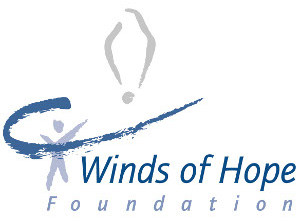- c/o Winds of Hope Foundation, Ch. de Montolivet 19, 1006 Lausanne, Suisse
- +41 (0)21 320 77 22
- info@nonoma.org
« Love and charity seek to replace « them », « you » and « me » with an all-embracing « us ».» Gabriel Madinier
General
Origin

In March 2002, the Winds of Hope humanitarian foundation, founded by Bertrand Piccard and Brian Jones, organized the first roundtable to bring together and coordinate the efforts of field workers involved in combating noma. On 20 March 2003, the International NoNoma Federation initially brought together 17 members (NGOs, associations and foundations), all determined to work together to increase their chances of eliminating this neglected scourge of noma. The presidency of the Federation was entrusted to Winds of Hope.
Today, the Federation has some thirty members who work together to develop local and international synergies, while respecting a common ethical code. These NGOs are based mainly in Switzerland and France, but some are in Austria, Germany, Belgium, Great Britain, the United States, Burkina Faso, Ethiopia, Mali, Niger and DR of Congo.
Since March 2003, the Federation’s members have met annually for a General Assembly and Round Table.
Missions
The missions of the Federation are to:
- Present joint campaigns and offer a single representative spokesperson to health and political authorities, at both international and local level;
- Informing the public and media about the need to combat noma;
- Offer its members a communication platform, using new technologies to improve their functioning in the fields of prevention, detection, research, medical and surgical care, rehabilitation and reintegration.

Areas of activity
Prevention
- Training
- Raising awareness and detection
- Primary care
- Environment
Treatment
- pre-/post operative care
- surgical missions
- personal rehabilitation
- social and professional reintegration
Joint actions
- cooperation between membres
- human right
- political dialogue
- collaboration with international Organizations
Studies and Research
- etiological research
- epidemiology monitoring

